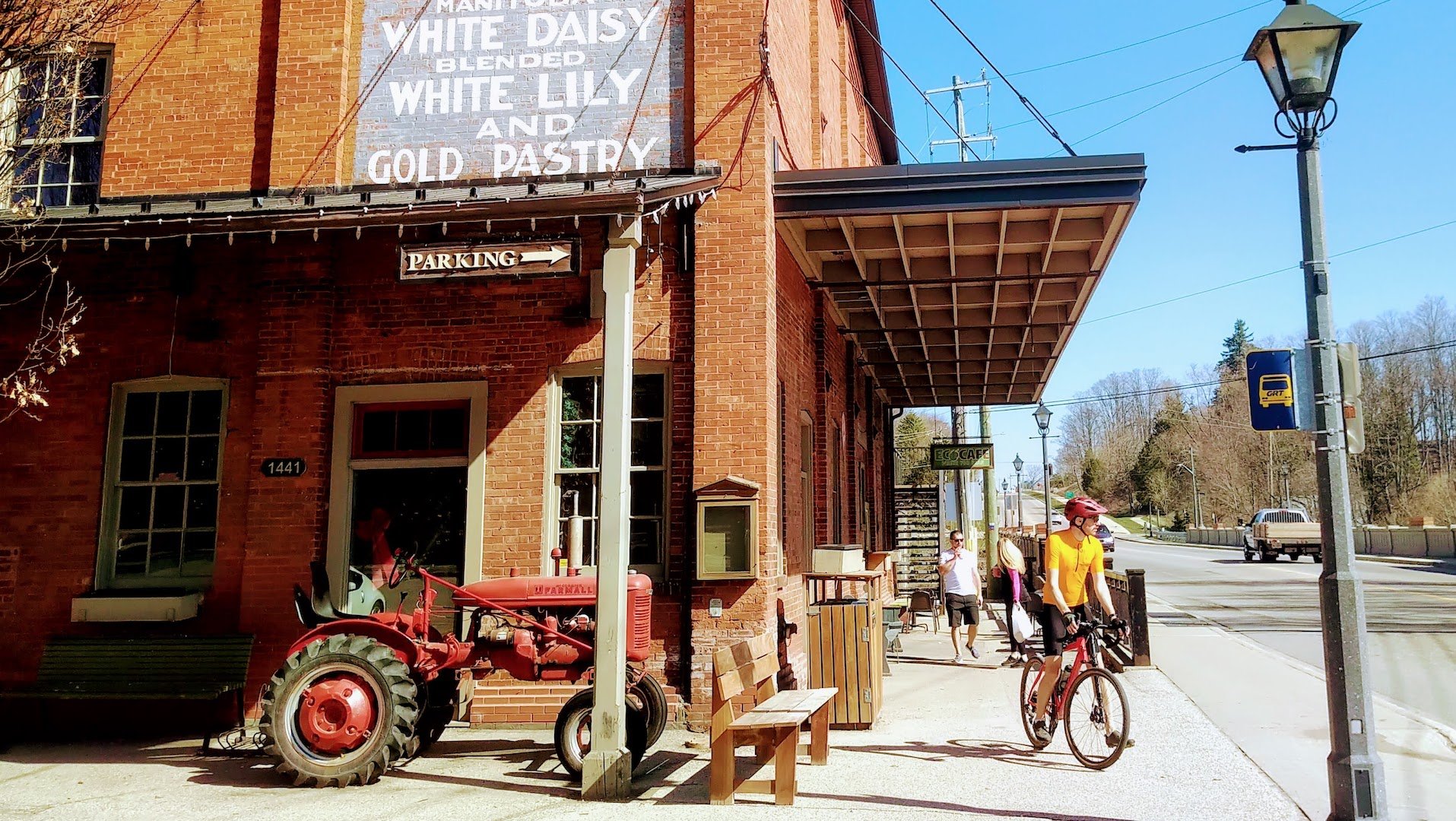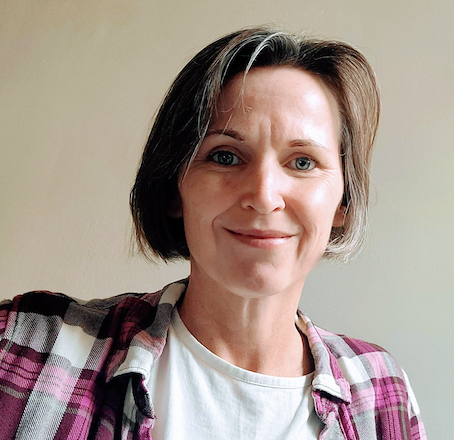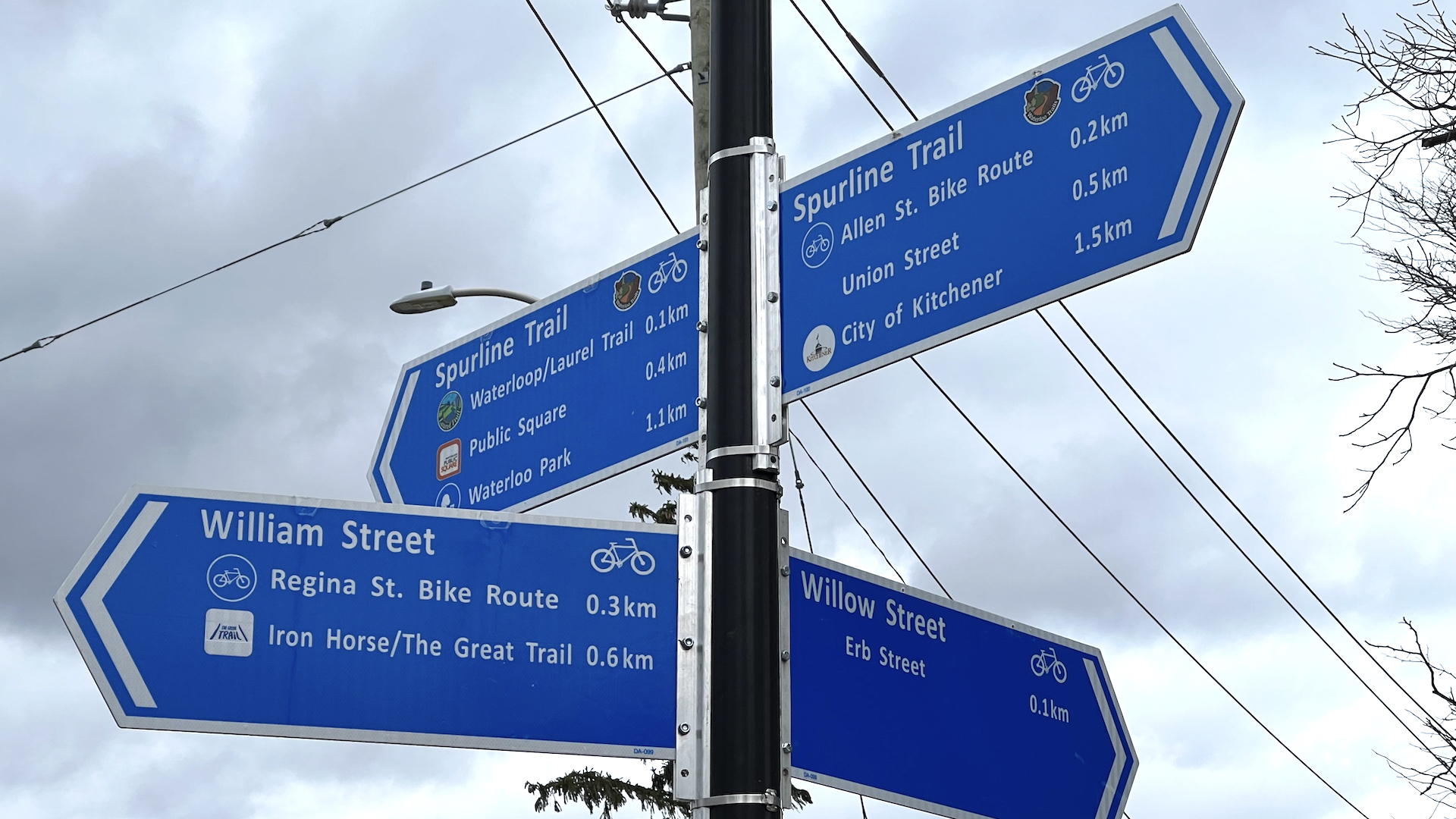The Village of St. Jacobs might be best known for the horse-drawn buggies of its Mennonite residents, but some locals have their sights set on another animal-powered vehicle to boost tourism numbers and, hopefully, revenue.
Cycling tourism is an area of great potential for Waterloo Region, according to industry insiders. Sitting just 3 km north of the City of Waterloo’s northern boundary and 12 km from downtown Kitchener, St. Jacobs is determined not to miss out.
This picturesque village of around 2,000 people is perfectly placed for day-trippers within the region as well as overnight-and-longer visitors from beyond. Several businesses and hotels are already certified ‘cycling friendly’ by Ontario By Bike, bike racks have been installed throughout the village, and a new pavilion at the Health Valley Trailhead includes a full bike repair station.
Now, they just need to make sure people know about it – and can get there, said Erin Schmidt, program manager for the St. Jacobs Village BIA.
“We have a great location next to beautiful countryside and urban areas, but having good directions specific to cycling and route options for visitors is important,” Schmidt said. “The current maps for cyclists in the area are cumbersome and not user friendly.”
Cycling Guide is closing that gap. The app — which is available now — offers riding loops that range from a few hours to a few days, with recommended pit-stops and accommodation along the way, plus a detailed inventory of bicycle parking right across the region.
Want to head somewhere off those beaten tracks? Not a problem. The app’s main purpose is to deliver cycling-friendly routes from where you are to wherever you want to go, tailored to your own cycling comfort level.
For Explore Waterloo Region, the local tourism body working closely with app developer Zeitspace, this has a double benefit: not only can people find their way around when they’re on their bike, they can also scope out different routes and get day-dreaming long beforehand.
“It’s the inspiration planning,” says ExploreWR’s Susan Cook-Scheerer. “You choose cycling because you want to immerse yourself in a place. Now, we’re working to put together what cyclists need for their inspiration when they come to Waterloo Region.”
It’s hard to accurately gauge the size of cycling tourism to and in the region. Numbers had been building when, in 2019, there were 50,000 cycling visitors to the region: about 1% of the market.
Then the pandemic hit, which hurt tourism everywhere. But lockdowns and social distancing also got a lot of people out on their bikes. That, says Explore WR’s Anna Moran, means the appetite for cycling tourism is likely stronger than before. And it’s a hugely lucrative market.
“Cycling tourists spend a whole lot of money compared with the average visitor,” Moran said. “When you can attract a cycling visitor, you’re much more likely to attract somebody who’s going to spend the night, spend money in restaurants and attractions, and all the other things. They’re a very attractive target.
“With the region’s really strong trails and infrastructure, it’s nothing but opportunity for us to really work to increase cycling visitation and enhance the region’s profile as a destination for cycling. We want more cycling visitors, and we want them to tell their friends.”
This point isn’t lost on Edward Denyer, the owner of Eco Cafe in St. Jacobs. His cafe, in an old mill beside the Conestogo River, has stools covered in bicycle fabric, a patio wide enough to wheel a bike down, and serves up delicious caffeine and carbs. It’s also the starting point of the Butter Tart 700 (aka the BT700), a multi-day adventure cycling event held each June.
Denyer isn’t a cyclist himself, but he deliberately set out to make his business friendly to people who love it.
“It’s a very important demographic,” he said simply. “Smart tourism is what we’re looking for. These are people that will drink the best coffee you’ve got, they’ll eat properly because they need to fuel themselves.”
And, he added pointedly, the cyclists passing through usually have a partner or family at home who might like to come back for a longer visit.
“It’s that experiential tourism that drives it home,” he said. “If you can create an experience for people, they’ll remember it and bring other people. If you can get the cyclist, they’ll influence their families to engage because it’s quaint, beautiful, clean, unique, all those things.”
Again, the biggest market challenge is accessibility – making sure people can get here.
A new trail linking Waterloo and St. Jacobs opened last year, which will help some riders reach the village. But as Denyer notes, that only works if people can find it. “People often don’t know how to get to the trail. The app could do it really well,” he said.
(Indeed, the trail opening highlighted a key benefit of Cycling Guide’s hyperlocal nature: the new trail was incorporated into its routes the day the trail opened; Google Maps took weeks to do so.)
Road cyclists, however, have to tough it out on high-speed roads to reach the village. Some are willing to do so, but it will take both improved routes and infrastructure to really open up the village to all cyclists.
The routes, at least, are coming. Zeitspace and ExploreWR worked together to create recreational cycling loops that range from a couple of hours between cities, to a multi-day trek visiting all of the cities and townships in the Region.
“We’re really looking at them being for all riders,” said ExploreWR’s Cook-Scheerer. “There are routes that are very family-friendly. If you’re the couple that wants to be able to stop off and have a great meal, get that sense of place, there will be routes that do that. If you’re a more hard core cyclist that really wants to take in a place but also challenge yourself, we have those routes, too.”
And if the route looks a little tricky, the app will provide other options to find a ride that’s more your style. “We want locals to embrace this,” Cook-Scheerer adds. “When tourists come in, they’ll see everyone out there cycling, and they’ll know it’s a great place to be.”
* Aspects of Cycling Guide’s development were supported by Explore Waterloo Region thanks to tourism relief funding from FedDev Ontario.




